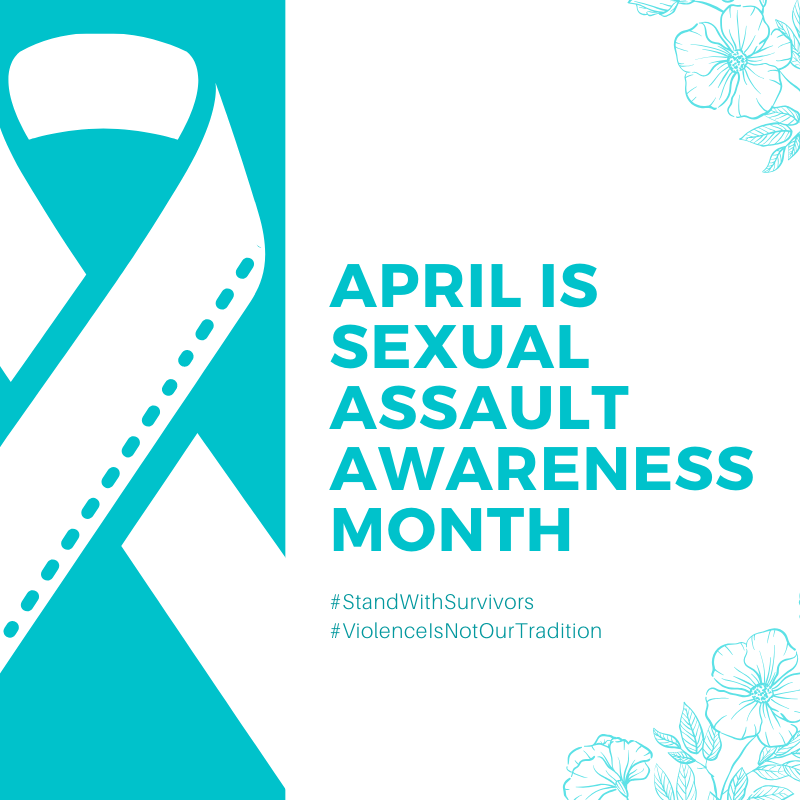
Empowering Colleges: Advocating Sexual Assault Awareness on Campus

By: Naely Fajardo & Collaboration with NSVRC
Sexual Assault Awareness Month (SAAM) holds a critical place in the annual calendar of college campuses, serving as a rallying point for survivors, advocates, and allies to confront and combat sexual violence. This year’s theme, “Building Connected Communities,” underscores the importance of collective action in creating environments free from sexual violence. In collaboration with the National Sexual Violence Resource Center (NSVRC), colleges and universities have access to invaluable support and resources tailored to their unique needs and challenges.
Within the intricate tapestry of campus life, the prevalence of sexual assault highlights the urgent need for proactive measures. From faculty and staff to students and administrators, every member of the campus community plays a vital role in shaping attitudes, policies, and responses to sexual violence. SAAM serves as a catalyst for dialogue, education, and advocacy, encouraging colleges to initiate conversations, implement effective policies, and provide essential support services for survivors.
Dates to look out for for next year (dates subject to change):
SAAM Day of Action (April 2nd)
The SAAM Day of Action takes place on the first Tuesday of every April, and is the opportunity to show your support with your peers and larger community. Put on your teal shirt and show us how you’re commemorating this year’s SAAM Day of Action!
Denim Day (April 24th)
Denim Day was a campaign started as a result of an Italian Supreme Court Case in which a survivor wasn’t believed due to the tightness of her jeans. The campaign website states, “Denim Day asks community members, elected officials, businesses and students to make a social statement with their fashion statement by wearing jeans on this day as a visible means of protest against the misconceptions that surround sexual violence.
Education and training lie at the forefront of prevention efforts, equipping individuals with the knowledge and skills to recognize and respond to instances of sexual violence. Comprehensive programs encompassing consent, healthy relationships, bystander intervention, and survivor support are essential components of campus initiatives. Additionally, the provision of confidential and accessible support services, including counseling, medical assistance, and legal advocacy, is paramount in ensuring survivors feel supported and empowered.
Policy reform is another crucial aspect of addressing sexual violence on college campuses. By reviewing and strengthening campus policies and procedures related to sexual misconduct, harassment, and assault, institutions can establish clear reporting mechanisms and consequences for perpetrators. Prevention campaigns, community engagement initiatives, and advocacy efforts further reinforce the commitment to creating a culture of respect, consent, and accountability.
Through continuous evaluation and adaptation, colleges can gauge the effectiveness of their prevention strategies, support services, and policies, ensuring they remain responsive to the evolving needs of their communities. By collaborating with organizations like NSVRC and leveraging the collective power of their campuses, college communities can work towards a future where every individual feels safe, valued, and free from the threat of sexual violence. SAAM serves as a reminder of the ongoing commitment to building connected communities that prioritize the well-being and dignity of every member.
Work Cited
“How Colleges Can Get Involved in SAAM 2024.” National Sexual Violence Resource Center (NSVRC), 18 March 2024, https://www.nsvrc.org/blogs/saam/how-colleges-can-get-involved-saam-2024. Accessed 17 April 2024.

